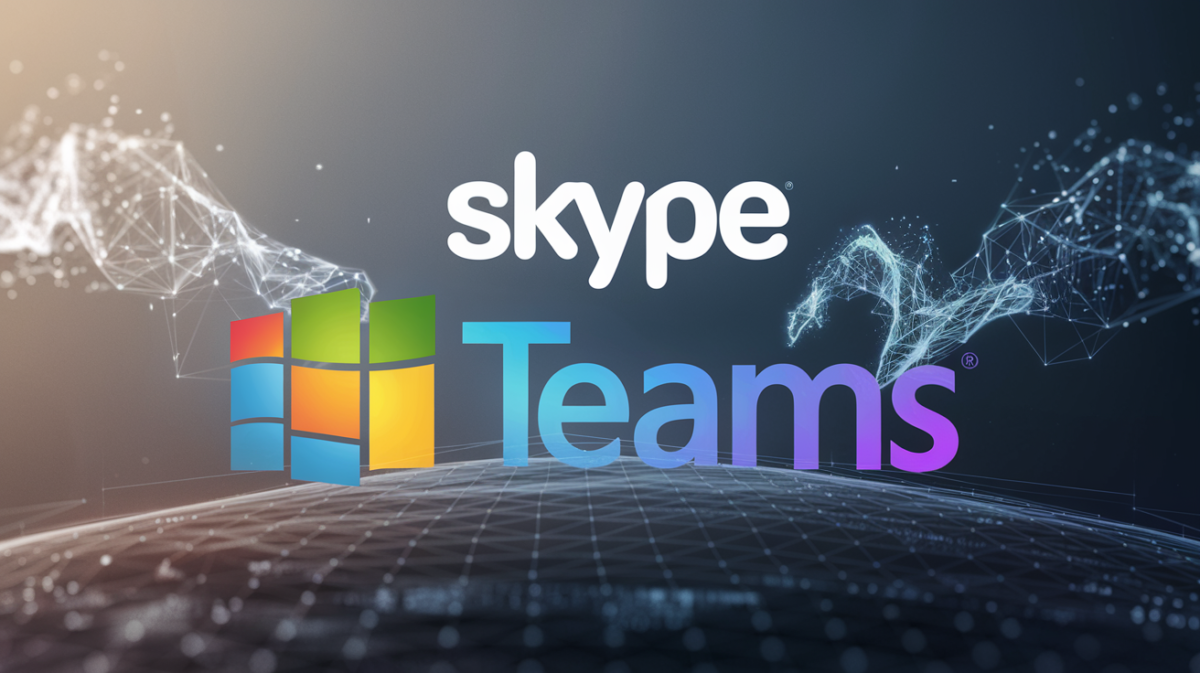Microsoft has announced the retirement of Skype, the groundbreaking video and voice call service that redefined online communication. Effective May 2025, Skype will officially shut down, marking the end of an era for a platform that once connected millions worldwide. This move reflects Microsoft’s strategic shift towards its modern collaboration tool, Microsoft Teams.
The Rise and Fall of Skype
Launched in 2003, Skype revolutionized the way people communicated by offering free international calls through peer-to-peer technology. Its simplicity and affordability made it an instant hit, leading to its acquisition by eBay in 2005 for $2.6 billion. However, eBay later sold its stake, and in 2011, Microsoft stepped in, purchasing Skype for $8.5 billion with plans to integrate it into its ecosystem.
Despite its early dominance, Skype struggled to keep up with newer, more agile competitors. Platforms like Zoom, Google Meet, and WhatsApp offered sleeker interfaces and additional features, gradually eroding Skype’s user base. By 2023, Skype’s monthly active users had plummeted from over 300 million in 2016 to just 36 million.
Why Microsoft Is Retiring Skype
Microsoft’s decision to retire Skype stems from its focus on consolidating communication tools under Microsoft Teams. Teams, introduced in 2017, has evolved into a comprehensive hub for collaboration, offering:
- High-quality video and voice calls
- Group messaging and file sharing
- Meeting scheduling and calendar integration
- Community-building features for businesses and educators
With Teams already serving as the backbone of Microsoft’s communication strategy, maintaining Skype as a separate entity no longer made sense.
What Skype Users Need to Know
For the millions still using Skype, Microsoft has outlined two primary options:
- Migrate to Microsoft Teams: Users can log into Teams using their Skype credentials, and their chats, contacts, and call history will automatically transfer.
- Export Data Before the Deadline: Those who prefer not to switch to Teams have until May 5, 2025, to export their Skype data, including messages and contacts.
Comparison: Skype vs. Microsoft Teams
| Feature | Skype | Microsoft Teams |
|---|---|---|
| Video Calls | Basic, up to 50 participants | Advanced, up to 1,000 participants |
| Messaging | Simple chat functionality | Rich messaging with file sharing and integrations |
| Collaboration Tools | Limited | Comprehensive (e.g., shared calendars, task management) |
| User Base | Declining (36 million in 2023) | Growing (over 270 million in 2023) |
How Users Are Reacting
The announcement has sparked mixed reactions. On platforms like Reddit and YouTube, longtime Skype users have shared nostalgic memories of the platform, recalling how it bridged distances during its heyday. However, many acknowledge that the transition to Teams is inevitable, given its superior functionality.
Some users have expressed concerns about the learning curve associated with Teams, particularly for those who relied on Skype for personal calls. Microsoft has assured users that resources and tutorials will be available to ease the transition.
Looking Ahead
The shutdown of Skype marks a pivotal moment in the evolution of digital communication. While it may be the end of an era, Microsoft’s focus on Teams promises a more integrated and feature-rich experience for users. For those still using Skype, the clock is ticking—whether to migrate to Teams or export their data before the final curtain falls.
As the digital landscape continues to evolve, one thing remains clear: the tools we use to connect will keep changing, but the need for seamless communication will always endure.







